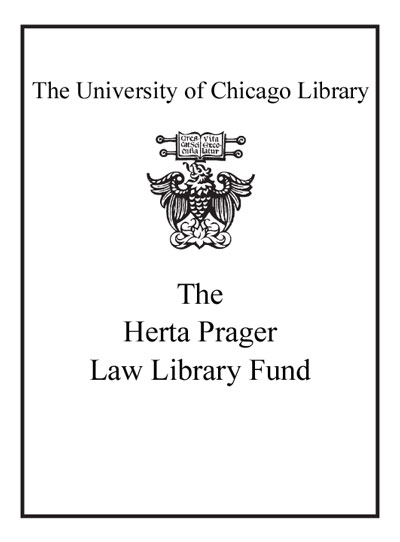Paradigms in modern European comparative law : a history /
| Author / Creator: | Fekete, Balázs, 1980- author. |
|---|---|
| Imprint: | Oxford ; London ; New York ; New Delhi ; Sydney : Hart, 2021. ©2021 |
| Description: | xiv, 203 pages ; 24 cm. |
| Language: | English |
| Series: | European Academy of Legal Theory monograph series ; volume 16 European Academy of Legal Theory series ; v. 16. |
| Subject: | |
| Format: | Print Book |
| URL for this record: | http://pi.lib.uchicago.edu/1001/cat/bib/12708911 |
| Summary: | This book uses the philosophy of Thomas Kuhn to provide a new vision of the development of European comparative law that will challenge and inspire scholars in the field. |
|---|---|
| Physical Description: | xiv, 203 pages ; 24 cm. |
| Bibliography: | Includes bibliographical references (pages [169]-177) and index. |
| ISBN: | 9781509946921 1509946926 9781509946969 1509946969 |

